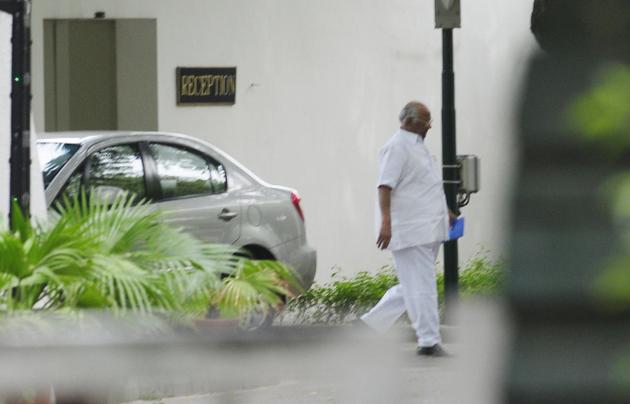
New Delhi, July 20: The NCP’s stand-off with the Congress leadership continued on Friday with the party saying it has “serious issues” over the functioning of the government and the coalition but remained vague on reports of resignation by Union Ministers Sharad Pawar and Praful Patel.
After a meeting between Mr. Pawar and Congress president Sonia Gandhi on Friday morning and with Prime Minister Manmohan Singh on Thursday night, the party, however, said it continues to be an “integral” part of the UPA.
Rejecting as “absurd” that Mr. Pawar was upset over the denial of No. 2 slot in the Cabinet, Mr. Patel said the party has raised “completely different” issues with the Prime Minister in a communication and with Sonia Gandhi and what ultimately the party decides will be communicated after its meeting on Monday.
“We are unhappy with some aspects, which have been raised by Mr. Pawar in personal meetings with Prime Minister Manmohan Singh and Sonia Gandhi,” Mr. Patel said after Mr. Pawar held confabulations with senior party colleagues.
Asked whether Mr. Pawar and he have resigned, Heavy Industries Minister Patel said, “Till such time we have not given any formal resignation...the issue is not resignation...till it is not accepted...we have sent a communication.”
Without disclosing the specific aspects of discord, he said, “Our issues are: functioning of the government, functioning of UPA and functioning of the larger coalition.”
Mr. Patel said the UPA-II was entering the last two years of its term and NCP wanted the government to be “more decisive” and “more committed” to the issues before the people of the country. “We do have certain issues on which we want some new direction,” he said.
Mr. Patel accused some sections in the Congress of fuelling speculation that Mr. Pawar was upset over denial of No. 2 slot.
Even today they are spreading stories in the media that some of the demands of Mr. Pawar have been met and some cannot be met and that he cannot be given the No. 2 slot as NCP does not have the numbers.
“Unreasonable and unnecessary comments are being made by sections in the Congress party to create a wedge. These issues should be addressed in the larger interest of the coalition,” he said.
Mr. Patel said, “Mr. Pawar is not such a petty leader who will raise such a petty issue himself. Our issues are larger. The issue of No. 2 has been blown out of proportion...By virtue of his stature Mr. Pawar sits next to Ms. Sonia (in Parliament) and used to sit next to Pranab Mukherjee (in Cabinet meetings).
“He (Pawar) had not asked for it. That he was not given by virtue of numbers. If that is the logic, NCP had less even in UPA-I. The UPA and the Congress leadership realise that by his stature he brings much more to the table.”
“In fact, those raising this issue are petty themselves. NCP is not petty to make this an issue on whether we will continue in government or not.”





Comments
Add new comment